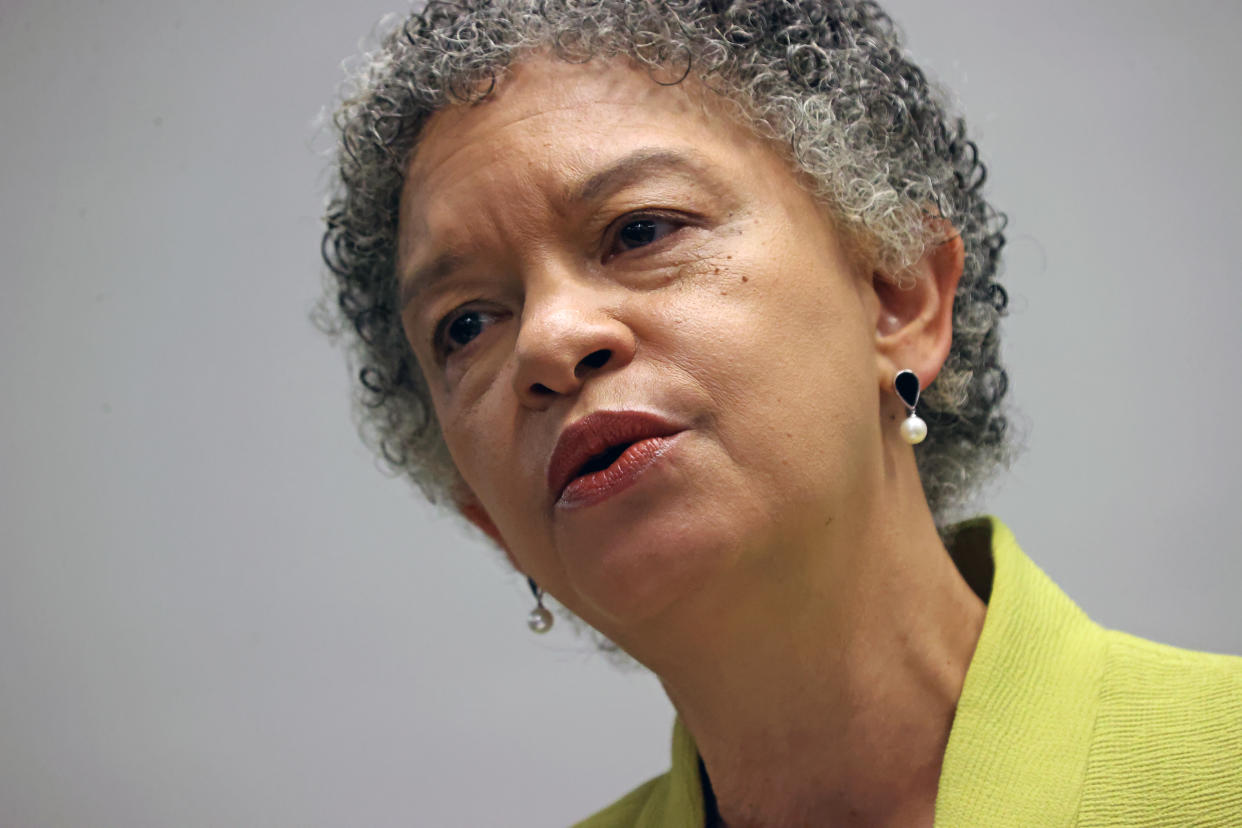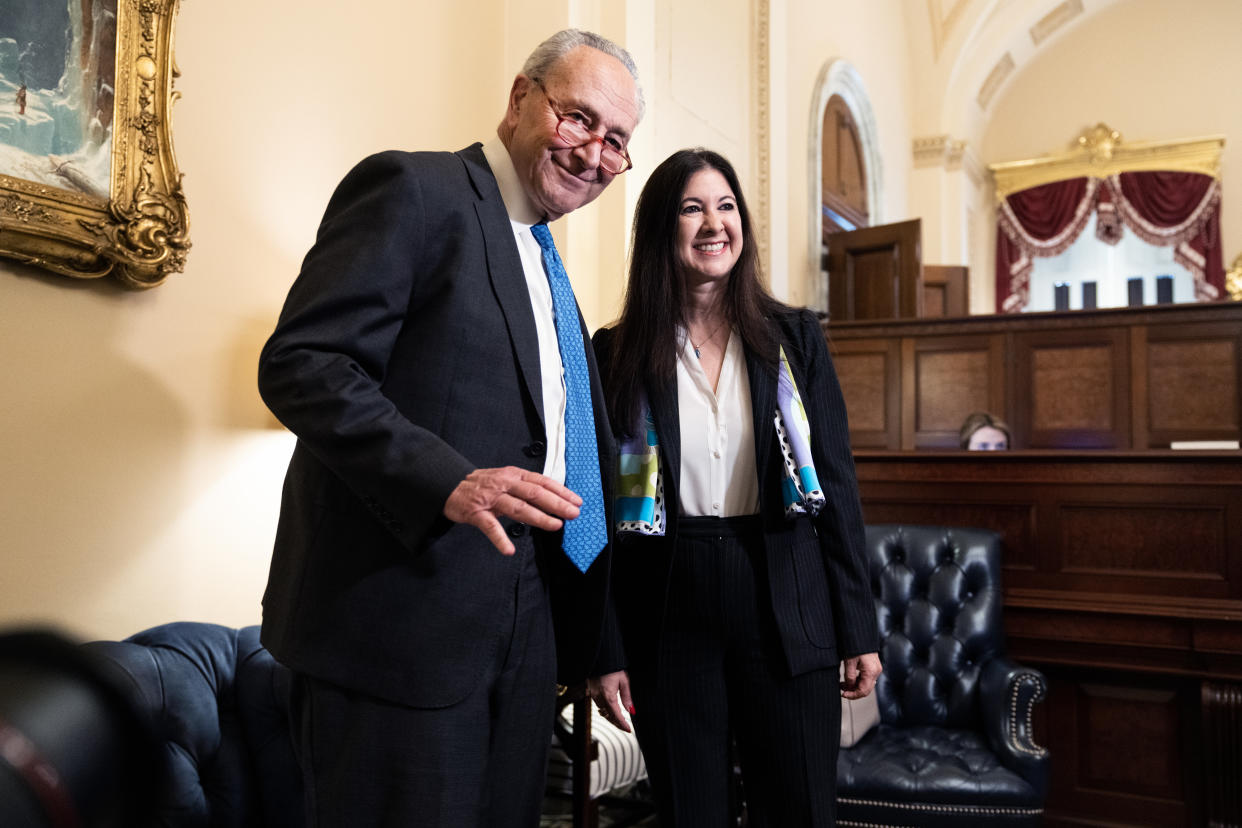Another Fed official says rate cuts likely 'later this year'
Boston Fed President Susan Collins said she needs to see more evidence inflation is coming back to the Fed’s 2% target before lowering interest rates, but that those cuts could come "later this year."
"I will need to see more evidence before considering adjusting the policy stance," Collins said in a speech in Boston. Collins is a non-voting member of the Fed's Federal Open Market Committee, which decides whether rates go up or down.
"That said, as we gain more confidence in the economy achieving the committee’s goals ... I believe it will likely become appropriate to begin easing policy restraint later this year."

Collins is the latest policymaker to pump the brakes on Wall Street expectations for an aggressive pace of cuts in 2024.
Investors began the year predicting six cuts starting in March and Fed officials have been pushing back on those expectations for the last month.
That includes Fed Chair Jay Powell, who said in a press conference last week that a March cut is "probably not the most likely case or what we'd call the base case." He also made the same point in an interview on the TV program "60 Minutes" that aired Sunday night.
The language the Boston Fed president used Wednesday to describe when cuts could happen was similar to the words used Tuesday by Cleveland Fed President Loretta Mester, who also said the central bank could lower interest rates "later this year" while warning it would be a "mistake" to cut too soon.
Another Fed official, Adriana Kugler, did not provide any additional hints Wednesday when delivering her first speech since being confirmed as a governor on the Federal Reserve Board.
But Kugler did say at some point "the continued cooling of inflation and labor markets may make it appropriate to reduce the target range for the federal funds rate."
Though she added that if progress on inflation stalls, it may be appropriate to hold the target range steady at its current level for longer.

The Fed last raised rates last July, placing them at a 22-year high as part of an aggressive effort to cool inflation. Fed officials have said they expect a total of three cuts in 2024.
For the moment, Collins thinks the Fed is well positioned with rates in the range of 5.25%-5.5%, she said Wednesday.
The fact that many measures of inflation expectations have returned to pre-pandemic levels suggests to Collins that the risk of inflation persistently running above the Fed’s 2% target has receded.
Collins says demand in the economy will need to soften more for inflation to show signs of durably coming down to 2%. She said she’s starting to see signs of that, but that she wouldn’t be surprised to see demand remain robust in the early part of this year.
Still, Collins points to delinquencies on credit card and auto loans having risen to around pre-pandemic levels and declining job turnover rates and job openings.
Kugler pointed to similar measures and expects inflation to continue falling, but also warned consumers could surprise with the strength of spending this year and slow the progress in inflation.
Kugler is also closely watching financial markets. While she says some measures of financial conditions have become less restrictive, they still remain tight.
Both Kugler and Collins say the risks of inflation and the economy are coming into better balance.
Collins is watching the components of inflation, including housing, which is taking longer to return to pre-pandemic trends. She and Kugler both want to see evidence wages are further slowing.
When the Fed does begin cutting, Collins said it will look to do so gradually.
Click here for in-depth analysis of the latest stock market news and events moving stock prices.
Read the latest financial and business news from Yahoo Finance
